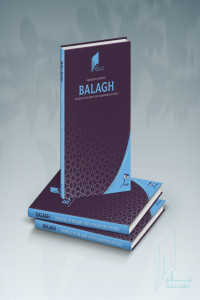The Literature of the Purposeful Word in the Holy Qur’ān and its Role in the Media Discourse: : Surat As-Shu‘arā’ as model
The Literature of the Purposeful Word in the Holy Qur’ān and its Role in the Media Discourse: : Surat As-Shu‘arā’ as model
The purposeful word contributes to forming the convictions of individuals and societies. The word remains the focal point of human life, either it carries with it goodness that yields good, or it bears evil that yields evil. The word of poetry was of great importance that had the lofty position among the Arabs. Perhaps the Arab poet in the past represented the contemporary media person who directs the minds of the public; A verse of poetry elevates one tribe and degrades another, honoring one person and humiliating another.
The poet was the broadcaster whose voice was heard in the Arab community, so Allah named a surah from the Holy Qur’an as “Al-Shu'ara “(The Poets).This name has a notice of the importance of the poets, who represented the audible and followed sound . This is a noticable sign for those who read the surah, to ponder its content, which is not devoid of situations that highlight the danger of the media voice, and its role in forming the collective mind of human societies.
Perhaps highlighting the positive or negative impact of the meaningful word contributes to the formation of convictions in human societies. Through the guiding media discourse in front of the hordes of misinformation advocates of corruption and seduction; The dialogues contained in Surat Al-Shu’ara represent the reality of informing both sides, the guide and the misleader. Meditation on the meanings of Surat Al-Shu’ara realizes its goals and objectives.
In this study, the researcher followed the method of induction and deduction in order to highlight the impact of the meaningful word in forming the collective mind of human societies.
It’s obvious to the researcher that the studies that were conducted on Surat Al-Shu’ara are all concerned with the field of rhetoric, and none of the researchers got on the purposes for which the surah was intended and the purpose of naming it “Al-Shu’ara” or its ending by the Qur’an - Ayats that describe the danger media effects for poeters who were described by Allah as misleaders and that they speak of things they may know and things that are beyond their knowledge, with the exception of those with a clean and kind word.
Therefore, the researcher determined to fill this gap, by researching and excavating the hidden details of the surah, to highlight the impact of the informative word that could be meaningful, guiding or misleading, and the extent to which societies are convinced of the intentions of its bearer.
He also presented the dialogues that took place between the messengers and their opponents, and highlighted the arguments and proofs of the two parties, as well as some rhetorical features and methods employed by each of the two teams, and the extent of their impact on the public.
Keywords:
the purposeful word, literature, the Holy Qur’ān poets, media discourse,
- Başlangıç: 2021
- Yayıncı: Karabük Üniversitesi
Sayıdaki Diğer Makaleler
Mulyono JAMAL, Suraji BADİ’, Syamsuri SYAMSURİ, Khurun'in ZAHRO'
تعليم العربية بالصلوات الجهرية منهج مقترح لتفعيل دور المسجد في تعليم العربية (سلطنة بروناي أنموذجا)
Sadettin ALİOĞLU, Salih DERŞEVİ
The position of Modernist Thought on the sources of knowing god his Attributes and the acts
أثر التلقي عند المفسر في تفسير القرآن الكريم
Khaled Abdullah Ali BRIAH, Tuğrul TEZCAN
معوقات النهوض العلمي في العالم الإسلامي من منظور تاريخي
تأثير الطيبي في مباحث علم البيان على السيوطي في كتابه "نواهد الأبكار وشوارد الأفكار
Linguistic interpretation of Ali Mansour Kayali "Critical Analytical Study"
